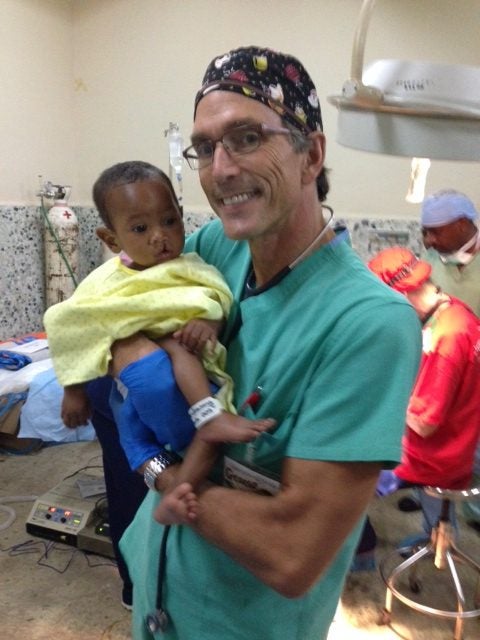Global Health Leadership Track

Dr. Kamilla Esfahani and Dr. Marcel Durieux teaching the anesthesiologists in Rwanda.
Residents with a desire to make global health part of their future career can apply for positions in the institutional Global Health Leadership Track (GHLT). This certificate program includes journal clubs, lectures of outside speakers, and two 2-week courses (Global Health Policy and Tropical Medicine), as well as travel overseas.
The time for trips abroad and that for the courses in the GHLT is part of elective time, which means that residents participating in longer activities (Rwanda teaching and/or the GHLT) will have little if any elective time left. On the other hand, the time used for teaching and service trips abroad is counted as training time and gets full credit from the Board.
Participating residents have found these experiences a wonderful addition to their residency training. Many have blogged their experiences: Pre-COVID, Dr. Kamilla Esfahani, a faculty member and part of the Global Health Program, blogged about her trip to Rwanda and summarized below:
“Through the Canadian Anesthesiologists’ Society International Education Foundation and American Society of Anesthesiologists’ Global Humanitarian Outreach (CASIEF/ASAGHO) program, I traveled to Rwanda to partake in a four-week teaching mission. Rwanda, like a phoenix rising from the ashes, is growing in every aspect since the genocide in 1994. This includes its number of anesthesiologists, which went from three to fifteen over the last fifteen years. With the help of CASIEF/ASAGHO – a volunteer mission collaborating with Dr. Paulin Banguti (current anesthesiology program director and department chair), anesthesiologists from UVA and other institutions help to “build capacity for safe, sustainable anesthesia care… through education, knowledge translation, and advocacy.” Each month, a different (and often times, recurring!) team of one or two US or Canadian physicians assists Dr. Paulin and his faculty with intraoperative teaching. The goal being that in the near future, our presence will be superfluous! And then we can simply travel for pleasure to visit good friends and gorillas.

Dr. Politis with one of our young patients before he had his cleft lip repaired
I had the honor of traveling with Dr. Marcel Durieux, a veteran and longtime advocate of the program in Rwanda. We spent as much time as possible teaching the twenty current residents and assisting junior faculty (many of whom Dr. Durieux had taught as residents!). One day a week was completely dedicated to lectures and simulation sessions, which are now mainly led and organized by the residents, with peripheral help from us. For the rest of the week, I taught in the ORs and ICU (in three Kigali hospitals and in Butare), assisting in patient care and discussing great cases. I experienced cases ranging from halothane induction in a two-day-old baby with gastroschisis to typical colectomies to femur fractures repaired under spinal anesthesia.
Words cannot fully express how much this trip meant to me personally. Along with the nursing staff and surgeons, the anesthesiology residents made a great impression on me in regard to teamwork. I have a tremendous amount of admiration and respect for the residents, who became dear friends. I look forward to returning in the near future – at which point my Rwandan co-residents will have blossomed into amazing faculty.”
